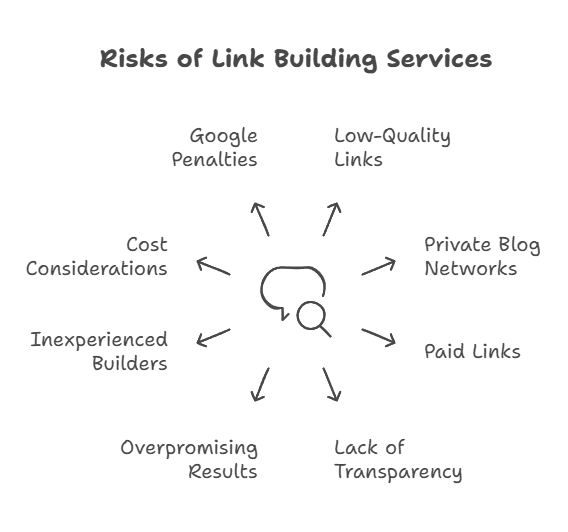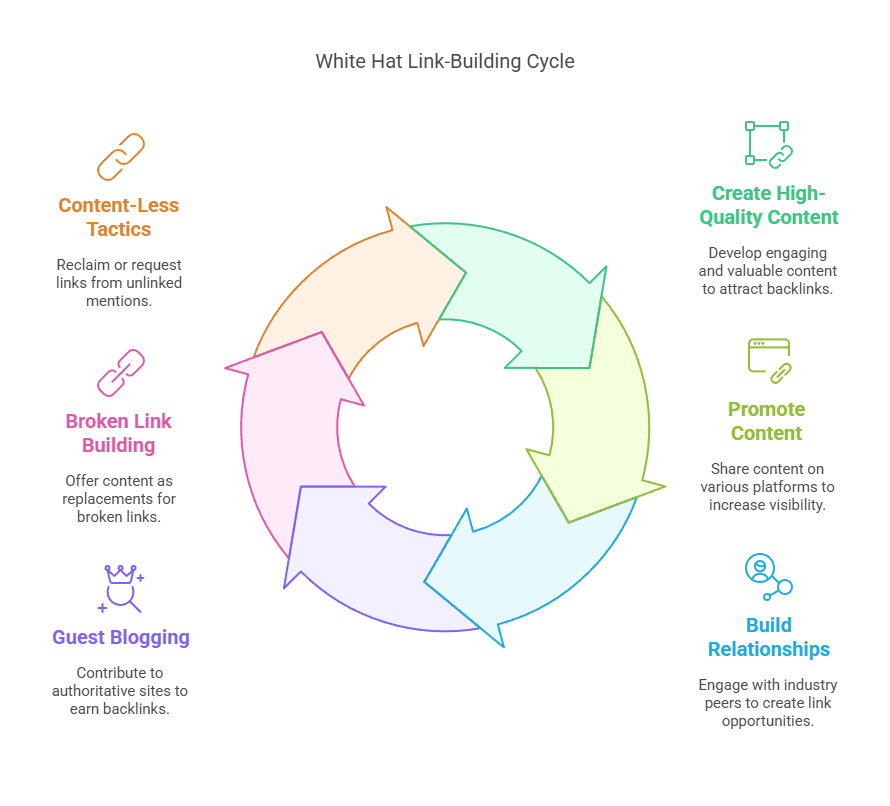Link building is a crucial aspect of Search Engine Optimization (SEO). Backlinks, or links from other websites to yours, act as votes of confidence, signaling to search engines that your content is valuable and trustworthy. The more high-quality backlinks you have, the higher your website will likely rank in search results, leading to increased organic traffic and visibility.
While link-building can be a highly effective strategy, it's essential to approach it with caution. Many link-building services promise quick results but employ tactics that can harm your website's reputation and even lead to penalties from search engines. This article aims to shed light on the potential risks of link-building services and outline strategies that genuinely work.
The Risks of Using Link Building Services
While many legitimate and effective link-building services exist, the industry is also rife with providers who employ questionable tactics. Here are some of the risks to be aware of:
- Low-Quality Links: Some services resort to building links from irrelevant or low-quality websites, which can harm your website's reputation and ranking. These links may come from spammy, irrelevant article directories or websites with low domain authority. Such links can trigger penalties from search engines, leading to a drop in rankings or even removal from search results.






